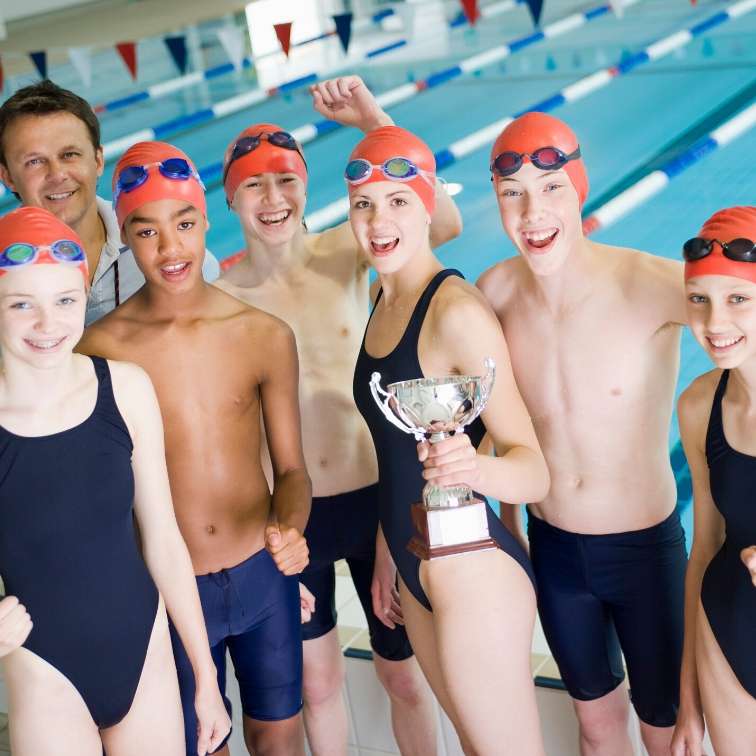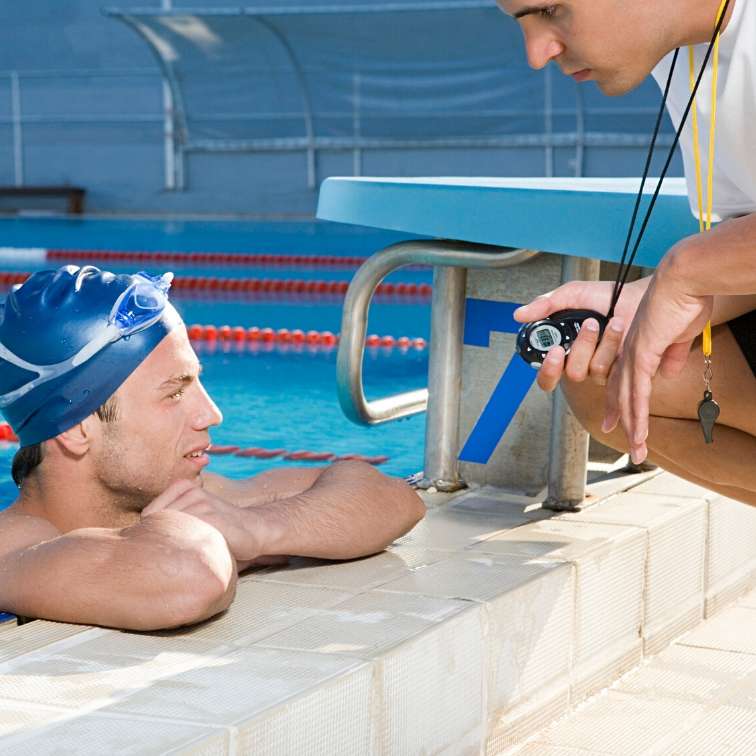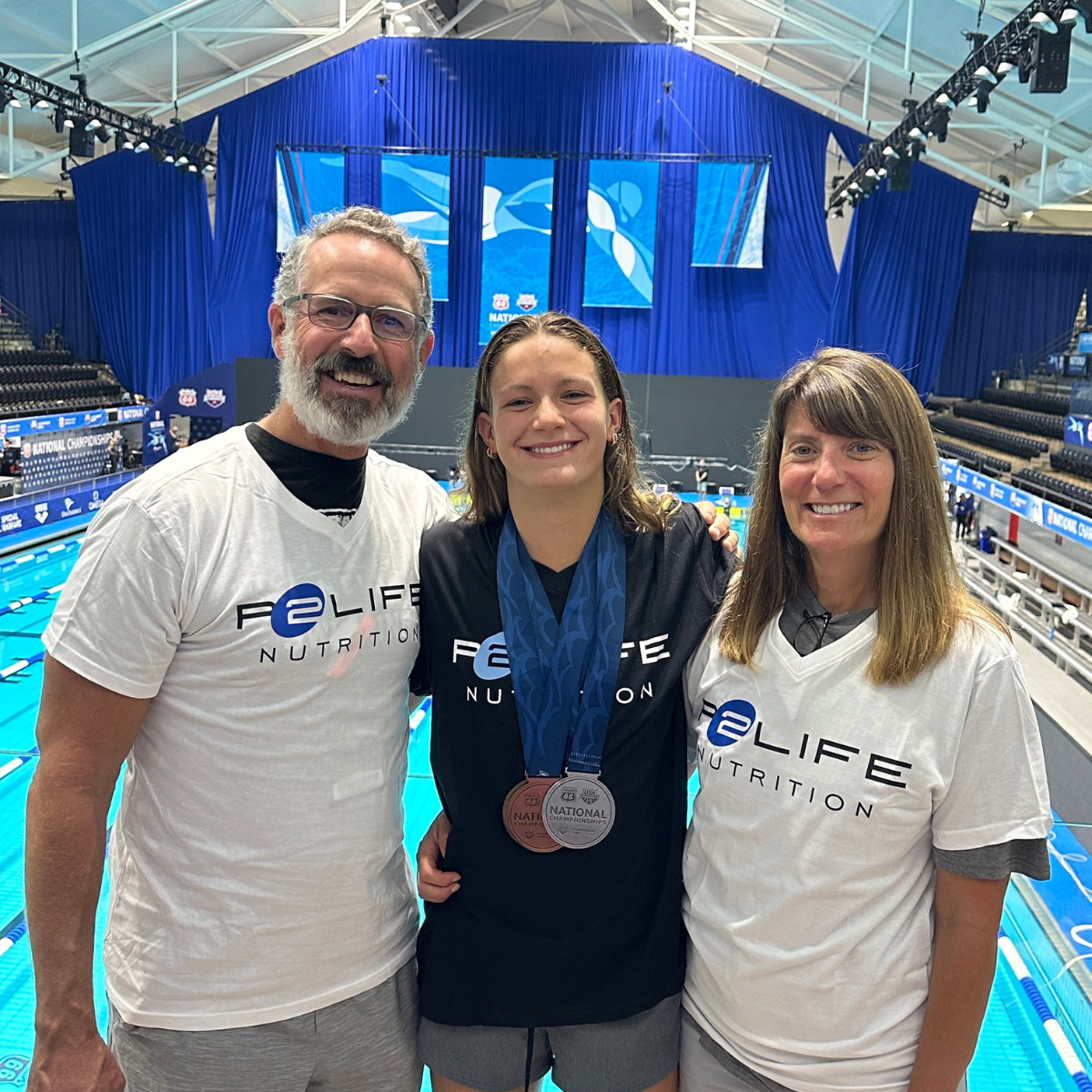
How Swimmers Can Use Zinc to Help Them Recover
There are many vitamins and minerals that swimmers should use to optimize their performance, both in the pool and outside of the pool. In past blog posts about nutrition for swimmers, we've talked about the benefits of Vitamin B, why iron is important, and the risks you take when you are not getting enough of these important nutrients in your body.
So how does zinc fit into your nutrition plan and what are the benefits of this important mineral? Let's explore why it's an important mineral for athletes and swimmers and what can happen if you're not getting an adequate amount.

What is Zinc used for?
Zinc's role in the body and your internal system is important for many reasons. This mineral is in every tissue in the body and plays a critical role in many of its key functions. One of those is controlling the body’s immune response. When zinc levels are low it leads to whole body inflammation and DNA damage that can make you susceptible to serious health problems including heart disease and cancer. Zinc also plays a part in the growth, repair, and recovery of muscle tissue, which is an important part of any athlete's training protocol.
Why should swimmers take it?
Zinc is an important part of cardiovascular fitness, and therefore the sport of swimming, which is an intense cardiovascular activity. This mineral is necessary to make an enzyme called "carbonic anhydrase" that transports carbon dioxide from tissues and carries it to the lungs to be released. When your body doesn't have enough zinc to facilitate this process, there is a negative impact on endurance and athletic performance.
According to a study published in Sports Medicine, mild zinc deficiency is frequently seen in endurance athletes, defined as athletes who participate in a sport for an hour or more. Many swimmers fall into this category, and 'should take 30 to 60 mg daily."1 If you're not getting enough, this can put you at risk for reduced endurance, loss of muscle mass and at greater risk for osteoporosis. In addition, low zinc levels reduce muscle strength and recovery time, so inadequate zinc could affect performance both during and after your swim workouts.
Am I Zinc deficient?
The daily recommendations for zinc are 11 milligrams per day for men and 8 milligrams per day for women, but if you are exercising, over 50 years of age, or an endurance athlete as noted earlier, you should be getting more in your diet. Also, if you have a vegetarian diet that limits certain foods, like animal protein, are eating an unbalanced and low nutrient-dense diet, eat a high carbohydrate/low protein diet, or are a female athlete, you may be at risk for a zinc deficiency.
Symptoms of zinc deficiency include decreases in cardiorespiratory function, muscle strength, and athletic endurance. And over the long term, a zinc deficiency may lead to "anorexia, significant loss in body weight, latent fatigue with decreased endurance and a risk of osteoporosis."2 If you are having symptoms such as frequent diarrhea, memory loss, frequent colds, or thinning hair, check with your health professional and nutritionist to ensure that you are getting the proper amount in your diet.
How can I get more in my diet?
Nutrition for swimmers is always a key component of your overall training plan, so integrating more zinc is something to definitely take note of for optimal performance. Zinc can be found in food sources like protein-rich foods including oysters, beef, chicken, pork and lamb. Non-meat sources include chickpeas, pecans, pumpkin seeds, and spinach. Zinc is also in our NutriBoost shake, which has 35% of your daily recommended value of this important nutrient, in addition to high-quality protein.
As always, a well-balanced diet is one of the best ways you can train your body for swim competitions. Don't ignore this critical part of your success in the pool! For more articles on nutrition for swimmers, follow our P2Life blog today!
Sources:
1. http://www.chiro.org/nutrition/FULL/Essential_Nutrients_for_Endurance_Athletes.shtml
2. http://www.ncbi.nlm.nih.gov/pubmed/11475319
3. http://www.medscape.com/viewarticle/717046_8










Leave a comment
This site is protected by hCaptcha and the hCaptcha Privacy Policy and Terms of Service apply.